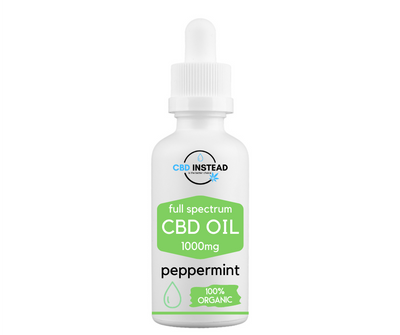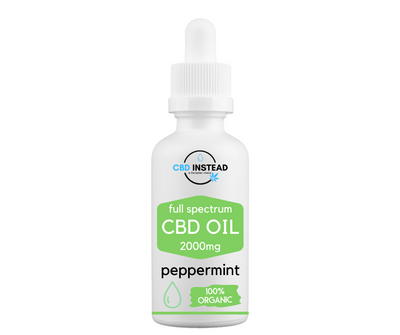Do you sit at a desk all day or hover over a bed of flowers for long periods of time? If you are constantly in weird angles or using your upper body, you could be at risk for a repetitive strain injury. Considering that the biggest problems with these injuries are pain and inflammation, CBD hemp oil may be able to help.
CBD oil may be able to help you find relief with repetitive strain injury because it helps to reduce your sensitivity to pain while also reducing the inflammation in your body. By elevating chemicals and stimulating receptors, CBD oil may be the solution to your RSI pain and discomfort.
What Is Repetitive Strain Injury

Repetitive strain injury (RSI) is a general term used to describe a pain felt in muscles, nerves, and tendons. This type of injury is also known as work-related upper limb disorder or non-specific upper limb pain. RSI mostly effects the forearms, elbows, wrists, hands, neck, and shoulders.
Symptoms Of Repetitive Strain Injury
- pain, aching or tenderness
- stiffness
- throbbing
- tingling or numbness
- weakness
- cramps
You may only notice these symptoms when you are doing the activity that is causing this injury to develop. The symptoms usually start out small and just an inconvenience. If the discomfort goes untreated, the pain can become more severe and become more frequent.
How Do You Get RSI?
These types of injuries are located in the upper part of the body from the overuse of muscles and tendons. Doing repetitive and high-intensity activities for a long period of time without rest can make repetitive strain injury develop. There are also several other causes that may contribute to these injuries.
Common Causes Of RSI That Can Also Make It Worse
- poor posture
- activities that require you to work in awkward positions
- cold temperatures
- vibrating equipment
- working in jobs like an assembly line, supermarket checkout, or typing at a computer
A comfortable work environment is important for avoiding these injuries. Your employer has a legal obligation to try to prevent these injuries and make sure that if you have a condition, it doesn’t get worse.
Examples Of RSI
Carpel Tunnel
In your wrist, there is a tunnel called the carpal tunnel with nine tendons and the median nerve passing through it. If pressure builds up in the carpal tunnel, the nerve inside gets squeezed and is unable to work properly. This can result in discomfort, pain, and numbness in the fingers.
What Causes Carpal Tunnel?
- repetitive wrist movements
- prolonged awkward wrist positions
- prolonged firm grip or pressure on the palm
- high speed or forceful finger movements
Trigger Finger
Trigger finger or trigger thumb is when there is pain or discomfort when trying to straighten or bend the finger or thumb. The finger can become locked or stuck when there is swelling of the tendon lining.
The tendon lining is like a tunnel where the tendon muscles glide to make movement. When the tendon lining is swelled, it impairs the smooth gliding motion which can result in pain or the catching feeling that happens when you try to flex your finger.
What Causes Trigger Finger?
- doing activities that involve excessive repetitive grasping.
- maintaining a firm grip of the hand with a hard surface for prolonged periods of time
- changes of connective tissue as associated with rheumatoid arthritis, gout, or diabetes.
- hormonal changes experienced during middle age or pregnancy
DeQuervain's Tenosynovitis
DeQuervain's tenosynovitis is when there is pain over the wrist joint near the base of the thumb. The tendons that connect to the thumb can become constricted in a tight tunnel that becomes progressively inflamed from repetitive movement and friction.
What Causes DeQuervain’s Tenosynovitis?
- holding the wrist in an awkward position when pinching or peeling
- resistive thumb motion performed repeatedly.
- repetitive twisting of the wrist, together with a prolonged gripping
- direct injury to the wrist or tendon which causes tissue scarring.
How To Prevent RSI
- maintain good posture
- take regular breaks when doing repetitive tasks
- try relaxation techniques when you are stressed out
- make sure the equipment you use is positioned so that it causes the least amount of strain
- request an assessment of your workplace to make sure that it is suitable and comfortable
What Do You Do When You Have RSI?

If you develop an injury because of your job or start to notice the symptoms, you need to let your employer know right away. They can help you make adjustments so that your condition doesn’t get worse. If the symptoms continue, you should talk to your doctor to find the right treatment plan.
How Is RSI Treated?
Identify The Cause
The first thing you need to do to treat your RSI is to find out why you have it. You may need to modify how you do the activity or stop doing it altogether.
Heat Or Cold Packs
The cold has an anti-inflammatory effect, but it can cause tightening, so it is always a good idea to warm up before you get back to work.
Elastic Support Or Splint
Support and splints are a great way to get relief for short periods of time, but it is suggested not to wear them for prolonged periods of time. You should also try to avoid wearing them in your sleep.
Physiotherapy
A physiotherapist can offer advice on posture and how to strengthen or relax your muscles. You can even find relief from symptoms using types of therapy like massages, yoga, and osteopathy.
Anti-Inflammatories And Painkillers
Your doctor may prescribe painkillers or anti0inflammatories to help with RSI. This can help with the pain and movement, but you may experience some side-effects. Over the counter painkillers might be suggested for you which can be harmful to your liver if you take them for long periods of time. This is why many people are turning to CBD hemp oil for their repetitive strain injury.
CBD And RSI

What Is CBD Oil
Cannabidiol (CBD) is a chemical extracted from the cannabis plant. Unlike the popular chemical found in cannabis THC, CBD oil doesn’t get the user intoxicated at any level. Many scientists have taken an interest in CBD oil because of its long list of healing potential and a short list of downsides. The way that CBD hemp oil works so well is because it interacts with our endocannabinoid system.
Endocannabinoid System
The endocannabinoid system is the system in your body that keeps you regulated. It makes sure that you are at a healthy temperature, that you don’t eat until you explode, or that you wake up. The way that CBD oil interacts with this system is by stimulating certain receptors, opening pathways in the brain for easier travel and stimulating cannabinoid receptors by elevating endocannabinoids.
Cannabinoid Receptors and Endocannabinoids
There are two main cannabinoid receptors, CB1 and CB2 receptors. The endocannabinoid anandamide mainly stimulates the CB1 receptor, and it helps to mediate the neurological functions in your body like appetite, sleep, pain, and your mood. The CB2 receptor mainly binds with the endocannabinoid 2-AG and helps to control your immune functions.
CBD For Pain
One way that CBD oil may be able to help with repetitive strain injuries is by reducing your sensitivity to pain. By using CBD topicals on the affected area, your body elevates an endocannabinoid called anandamide. This endocannabinoid binds to the CB1 receptor and helps to reduce your sensitivity to pain by reducing the pain signals sent out in your brain.
CBD For Inflammation
Inflammation not only makes injuries painful but too much inflammation can make the injury even worse. CBD oil has shown to help with inflammation by elevating the endocannabinoid 2-AG. This endocannabinoid binds to the CB2 receptor and tells the brain cell to stop sending out so many attack immune cells without compromising your ability to heal.
Talk With Your Doctor
If you have decided to start using CBD oil for the pain and inflammation associated with repetitive strain injury, talk to your doctor about it. Some medications can interfere with CBD oil if they are metabolized by certain enzymes called cytochrome p-450, and your doctor can help to make sure that your medication is okay to take with CBD oil. They can also help to monitor your progress to make sure that you are getting better.
Have you used CBD oil for a repetitive strain injury? We would love to hear about it in the comment section below!






















